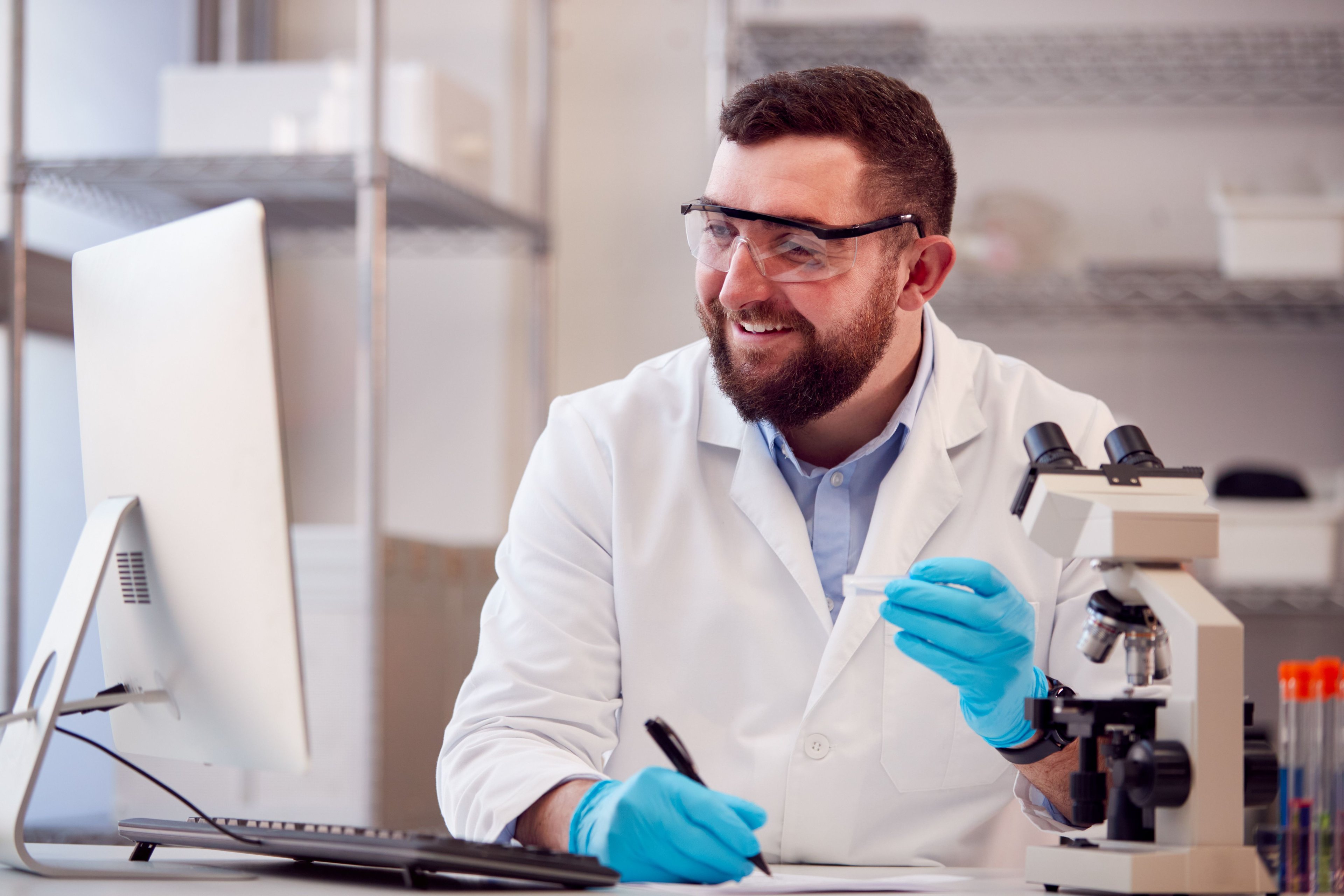It costs hundreds of millions of dollars to bring a drug through trials, and that's why drug companies like Isis Pharmaceuticals (ISIS 1.82%) are embracing partnerships with big pharmaceutical companies to co-develop, co-market, and co-share-the-costs.
Kynamro launches
So far, Isis has only one drug approved by the Food and Drug Administration. Kynamro, co-developed by Genzyme's parent company Sanofi (SNY 1.27%), was approved in January as a treatment for homozygous familial hypercholesterolemia, or HoFH -- a rare disease affecting just one in 1,000,000 people.
The approval triggered a handsome $25 million milestone payment from Sanofi to Isis, and that's likely money well spent by Sanofi. Kynamro has orphan drug status, which gives it longer patent protection, and treats a genetic disease tied to high cholesterol. As a result, the drug may have broader applications as a treatment for other cardiovascular and diabetic indications, too.
For now, Kyanmro competes with Aegerion Pharmaceuticals' (NASDAQ: AEGR) Juxtapid. Juxtapid gained FDA approval for HoFH in December, and both Kynamro and Aegerion's Juxtapid are ultra-high-priced drugs, costing $176,000 and $235,000 per year, respectively. Sanofi hopes Genzyme's marketing might can leverage Kynamro's cheaper price to win share from Aegerion. Aegerion's sales of Juxtapid totaled $6.5 million in the second quarter and $16.3 million in the third quarter, prompting Aegerion to boost its 2013 sales forecast to $45 million-$50 million from prior $30 million-$35 million estimates.
Sanofi is paying Isis 30% of Kynamro sales. But that could rise to 50% if drug sales eventually eclipse $2 billion annually. However, the drug's blockbuster opportunity isn't risk-free. The drug is sold with a black box warning for liver toxicity.
More drugs may be coming
Isis is developing drugs with AstraZeneca (AZN +0.00%), including ISIS-STAT3, an antisense drug heading into mid-stage trials for advanced lymphomas. The STAT3 protein is associated with a variety of cancers, including brain, lung, breast, bone, liver, and multiple myeloma. The broad potential convinced AstraZeneca to agree to up to $75 million in milestone payments to Isis over the coming two years and double-digit royalties on the drug if it's ever commercialized.
AstraZeneca also agreed to team up with Isis on ISIS-ARR, a preclinical antisense drug inhibiting the production of androgen receptor in prostate cancer. This past June, AstraZeneca paid Isis $10 million to add the drug to its co-development deal.
Isis is also working with Biogen (BIIB 0.05%) to develop ISIS-DMPK, an antisense drug for Myotonic Dystrophy Type 1, a genetic neuromuscular disease. Biogen agreed to co-develop that drug in early 2012 and paid a $10 million milestone payment to Isis in October.
More recently, Biogen inked a broader deal to develop neurological therapies with Isis in September. As part of that deal, Biogen handed over $100 million to Isis, which Isis will amortize over six years. Additionally, Biogen agreed to as much as $200 million in milestones for antisense molecules, plus trial costs and potential royalties.
Other late-stage drugs in Isis' pipeline include ISIS-TTR, which is designed to treat TTR amyloidosis and is being co-developed with GlaxoSmithKline. In July, GlaxoSmithKline paid a $2 million milestone associated with ISIS-TTR's phase 2/3 study. That was the first of a potential $50 million in milestones Isis may receive from GlaxoSmithKline during this study. GlaxoSmithKline has already paid Isis $20 million in previous milestones for the drug.
And, Isis is working with OncoGenex and Teva Pharmaceutical on custirsen. Teva and OncoGenex are studying custirsen as an adjunct therapy alongside chemotherapy, and the drug received FDA fast-track status for metastatic prostate resistant prostate cancer, or mCRPC. Teva is also studying the drug as a treatment for metastatic non-small-cell lung cancer. Data from Teva's study for custirsen as a first-line treatment for mCRPC is expected later this year.
Milestones drive financials
Given the lumpy nature of milestone payments, it may be more helpful to consider sales over longer periods, rather than quarterly. Taking that longer view suggests Isis is delivering. Revenue through the first nine months of this year totaled $105 million, up from $82.2 million in 2012.
That revenue came thanks to milestone payments including: $25 million from Sanofi when the FDA approved Kynamro; $10 million from AstraZeneca when it added ISIS-ARR to its collaboration; $16.5 million from GlaxoSmithKline because Isis initiated the phase 2/3 study of ISIS-TTR and advanced ISIS-GSK3; and $5.5 million from Biogen because Isis advanced the phase 2 study of ISIS-SMN in infants.
The final Foolish takeaway
Isis' revenue primarily depends on milestones rather than commercial sales -- something Isis and its partners hope will change. The company's shares have surged 200% this year on Kynamro and its pipeline opportunity. However, earnings remain elusive as R&D costs swell. In order for Isis to translate sales into profits, it will need to see more of its drug candidates commercialized. As a result, investors will be well served keeping a close eye on its late-stage trials.









